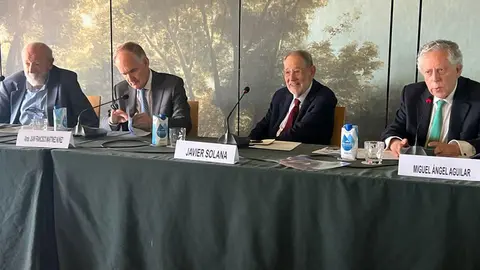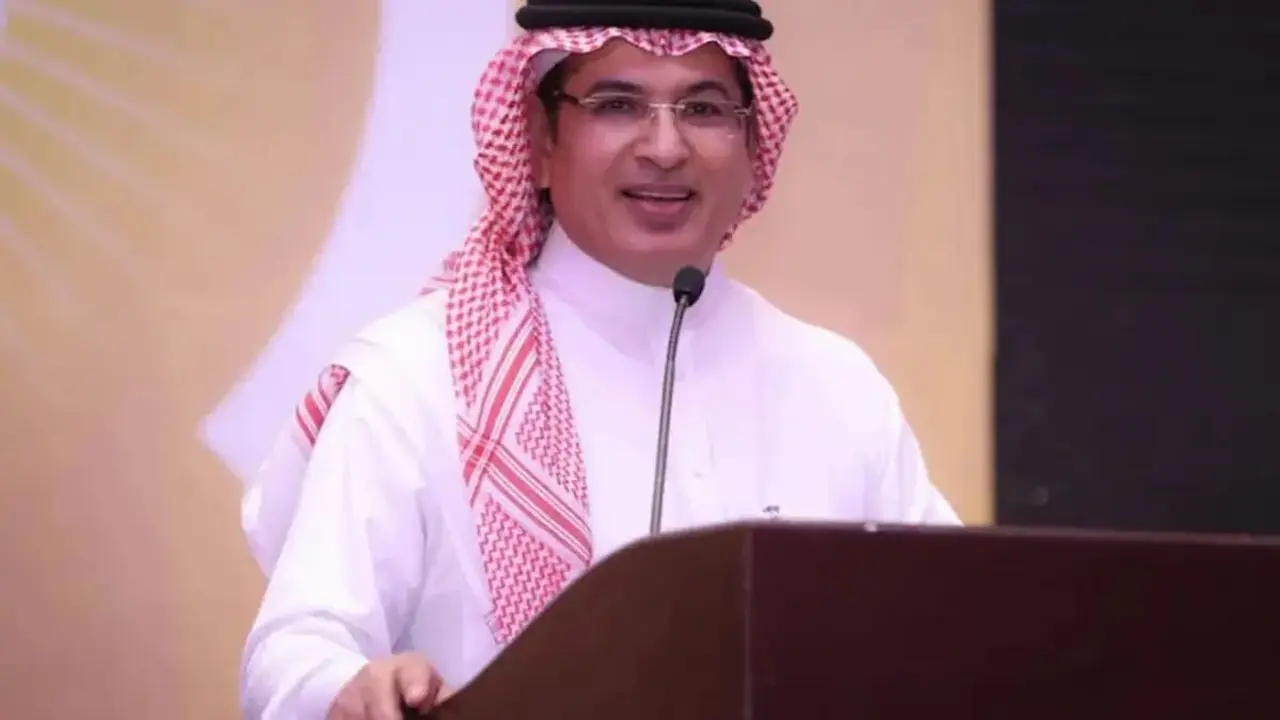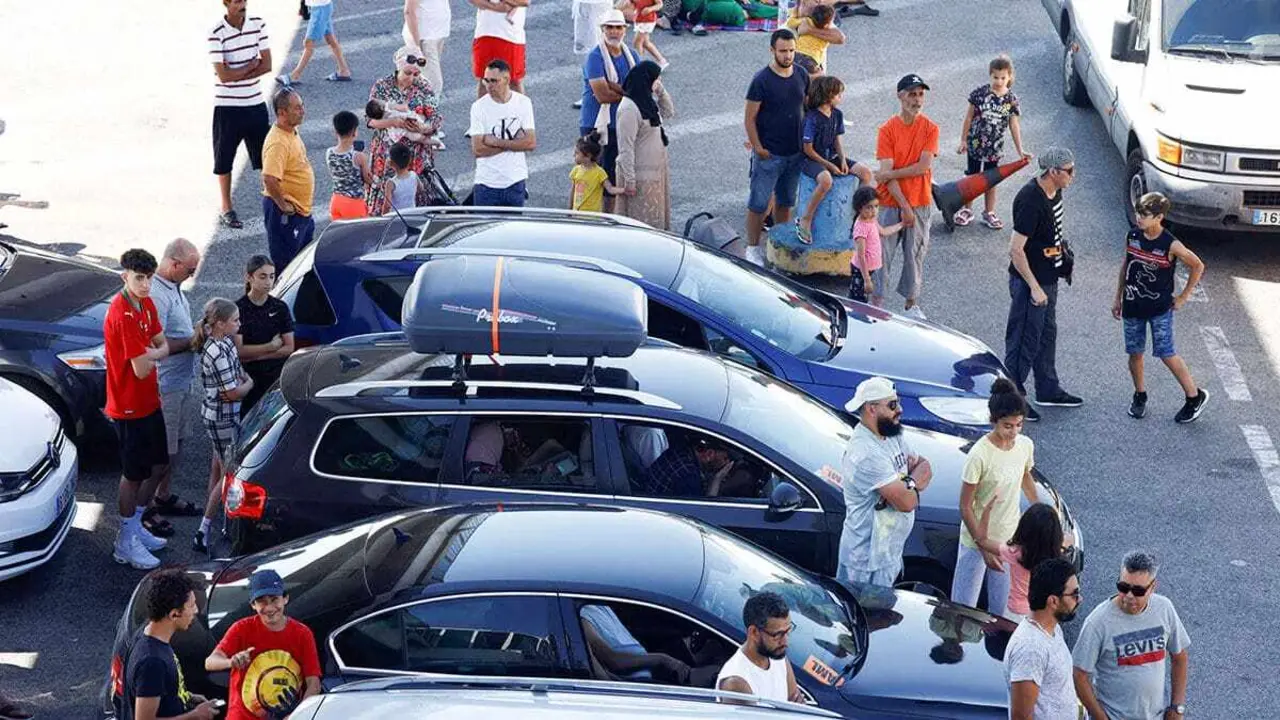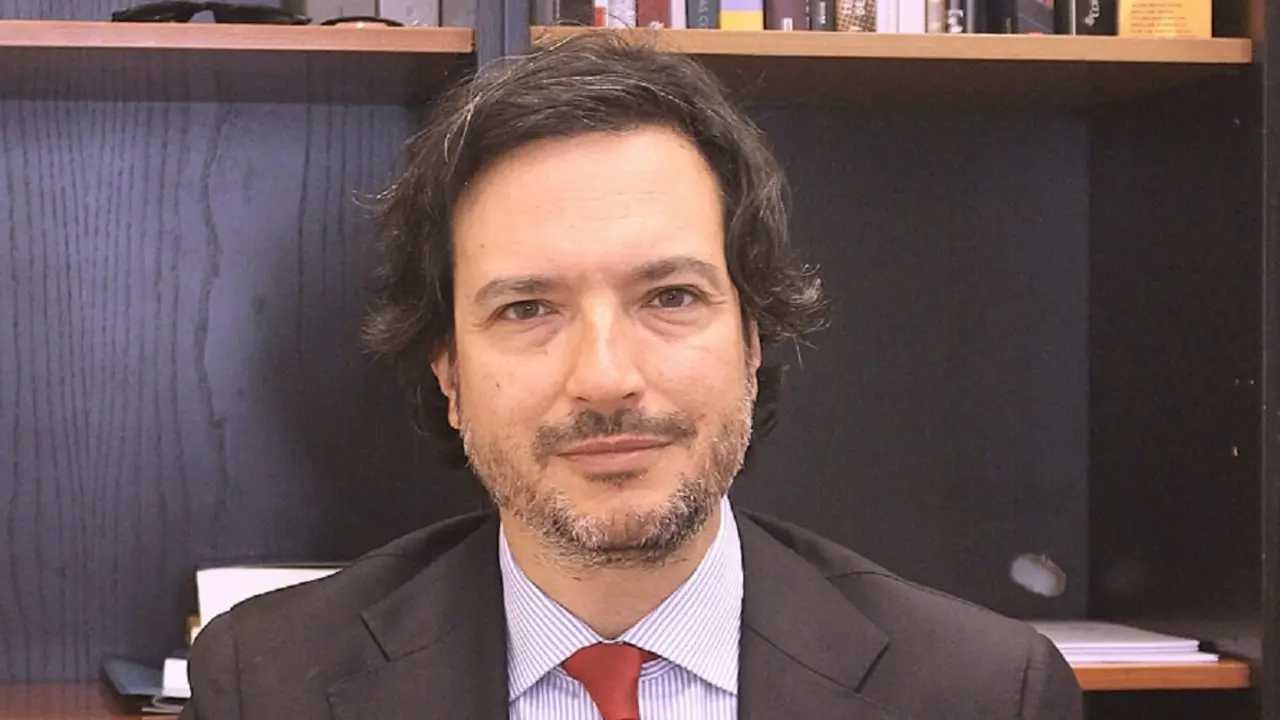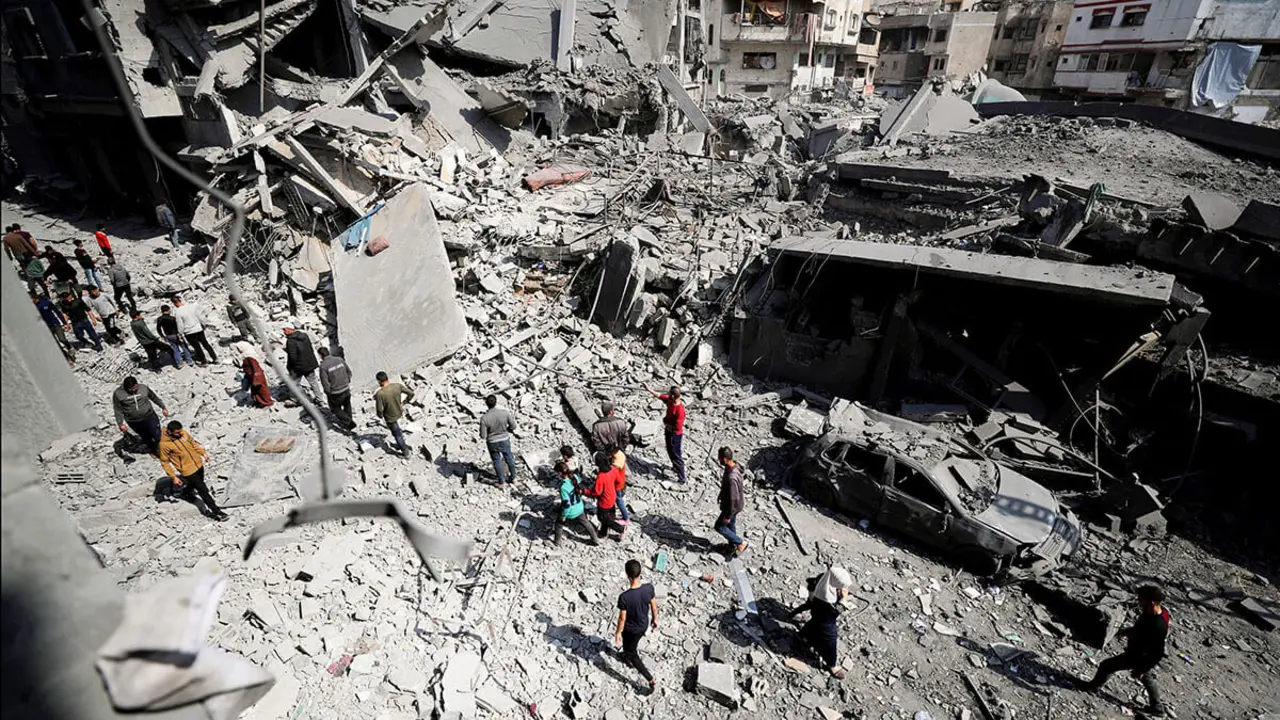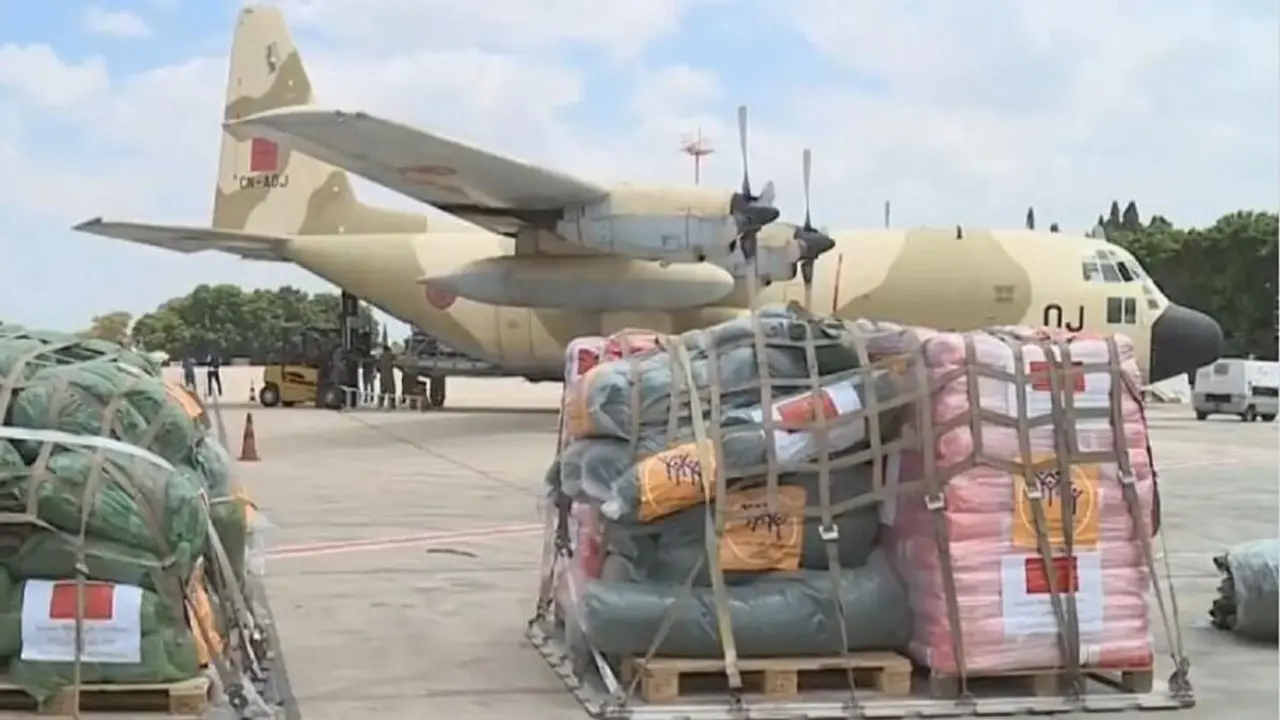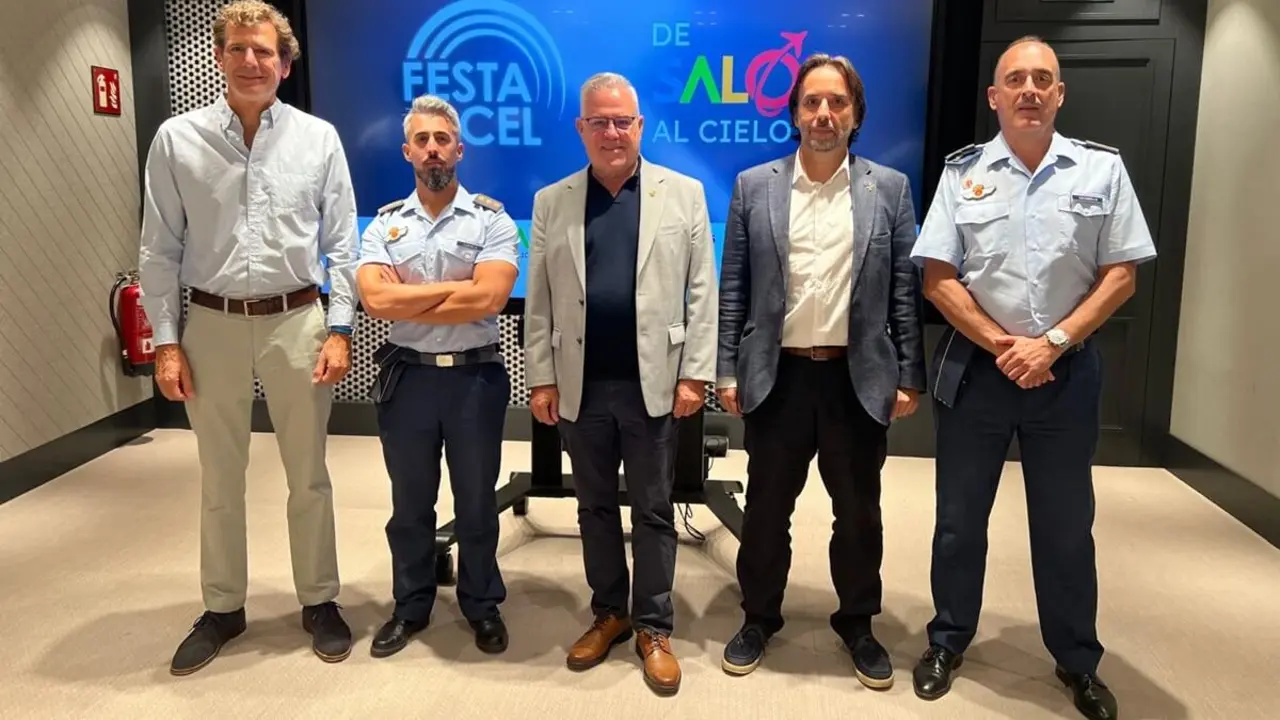Proa Comunicación analyses in a new observatory the challenges facing the defence industry

Proa Comunicación, in collaboration with the Spanish Atlantic Association, hosted a meeting entitled "War and peace in the global market", which analysed the situation of the defence industry, the war in Ukraine and NATO's current position.
Three leading figures from the national scene, surrounded by a large audience from the business, diplomatic and military worlds, analysed the national and international panorama: Retired Admiral Juan Rodríguez Garat, one of the military analysts who is best following the war in Ukraine and who didactically drew the world and Spanish panorama in the face of this Russian invasion; Adolfo Menéndez, jurist and State lawyer before the National High Court, former Undersecretary of Defence and now president of the Spanish Atlantic Association; and César Ramos, Director of NATO, who is also a member of NATO, and César Ramos, Director General of the Spanish Association of Defence, Aeronautical Security and Space Technology Companies (TEDEA), an economist with more than 25 years of experience in the management and direction of Aeronautics, Defence and Space business associations.
Lucía Casanueva, partner and director of Proa, moderated this Defence observatory, with the aim of analysing a world in constant change and where we face significant challenges that threaten our security. And where communication plays a very important role, as César Ramos made clear during his speech: "When it comes to communicating about the defence industry, we have to achieve two things: to enhance its value as a key sector for the economy and for Spain. And, more importantly, to maintain this favourable public opinion. And the second is to communicate positively, as little or nothing has been proactively communicated about the defence industry before the war in Ukraine. And to live in peace, you have to invest in defence".

In the words of César Ramos, "the greatest challenge facing our defence industry is not financial, nor budgetary, nor technological, nor business; the greatest challenge is to maintain the favourable state of opinion that has arisen as a result of the conflict in Ukraine and which has shaken Western citizens out of their lethargy. And also policy-makers". He added: "All countries have reacted by giving a higher priority to a policy such as defence, because they have begun to understand that without security there is no freedom and without freedom there is no progress. Defence is a European public good".
César Ramos brought up a quote from the recently deceased Princess of Asturias laureate, Nuccio Ordine, who reflected thus: "In the universe of utilitarianism, a hammer is worth more than a symphony, a knife, more than poetry, a spanner, more than a painting, because it is easy to take over the effectiveness of a tool, while it is increasingly difficult to understand what music, literature or art can be used for". "Something similar happens to us - in the words of César Ramos - we pay the price for a tank, a frigate or a military plane, but we find it difficult to understand the price of our security and our way of life".
The war in Ukraine has changed the world scene, as Admiral Garat admitted: "This war has broken all records for pretexts to justify it. One of those pretexts is Putin's claim to create a new, fairer world order. It is yet another of the Russian dictator's failures. But more important than the bipolarity of the new world are the structures that this war has brought down, such as the UN, which has never been more useless than in this war, nuclear weapons, which made people think that the powers could not go to war, and trade relations, because a mutual dependence as great as that which existed, for example, between Russia and Germany, where Russia acquired technology in exchange for supplying Germany with energy at modest prices, would prevent a conflict. With those pillars down, what are we left with? As the Roman maxim goes, "si vis pacem, para bellum", if you want peace, prepare for war. The world is rearming again. Which brings us back to an armed peace. And it helps us Spaniards to understand what the Armed Forces are for".
However, Adolfo Menéndez did not blame the war in Ukraine for the increase in defence spending, "the increase has come about because we are beginning to understand that we want to live in peace, in freedom and in a state governed by the rule of law. The war has been a warning that we can no longer live in a state of inopia as we used to. For Europe to remain as we know it, we have to invest in our security.
The debate came to a close with a question and answer session from the audience. And in addition to the three great speakers who occupied the podium, as Admiral Garat warned before his first speech, the audience included very illustrious military officers, such as General Félix Sanz Roldán, former JEMAD and ex-director of the National Intelligence Centre, who shared an idea: "Spain is one of the best allies of the Atlantic Alliance, but nobody believes them. Why? What should we do? And all because we are classified by what we invest in defence and not by what we contribute". Admiral Garat stressed that this is true, but everyone knows that "deterrence is done by the US aircraft carriers, but not by the Spanish frigates, which do not carry adequate ammunition because there has been no budget for it".

